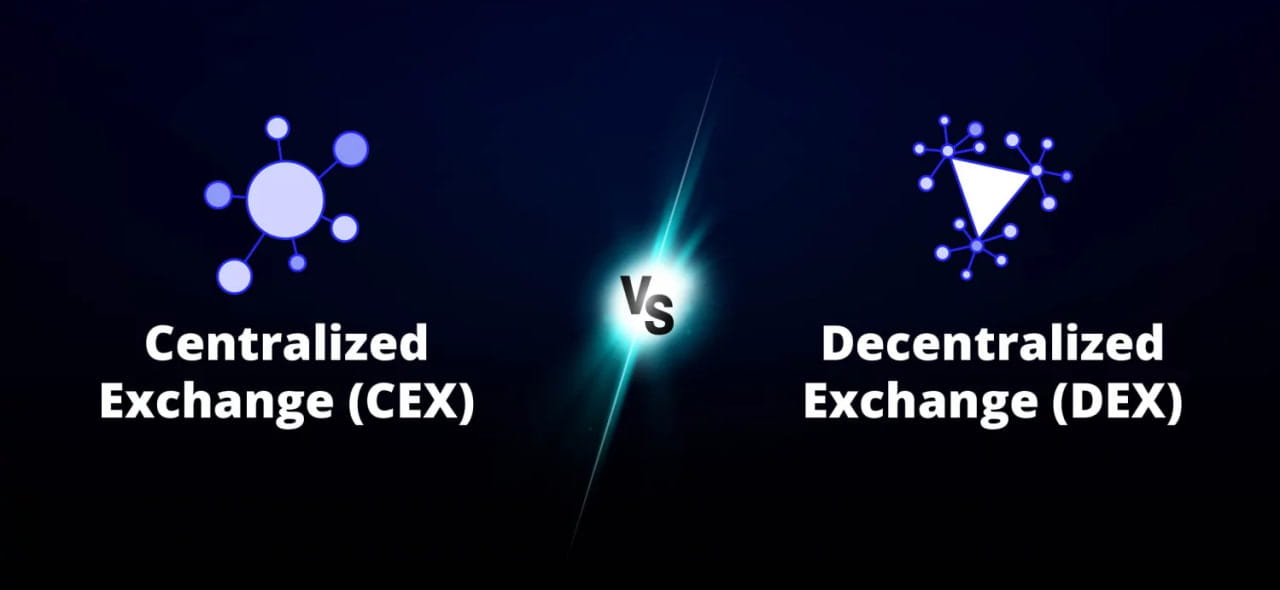
Introduction:
In the world of cryptocurrency trading, exchanges play a crucial role in facilitating the buying and selling of digital assets. Over time, two primary types of exchanges have emerged: centralized exchanges (CEX) and decentralized exchanges (DEX). This article aims to provide an impartial and comprehensive analysis of the features, advantages, and drawbacks of both CEX and DEX, allowing readers to make informed decisions based on their individual preferences and requirements.

Centralized Exchanges (CEX):
Centralized exchanges act as intermediaries between buyers and sellers, holding custody of users' funds. They are operated by a centralized entity, usually a company, which maintains control over the trading platform.
Here are some key features and considerations related to CEX:
1. Liquidity:
Centralized exchanges typically offer higher liquidity compared to decentralized exchanges. This is because they attract a larger user base, which leads to greater trading volume and tighter bid-ask spreads.
2. User-Friendly Interface:
CEX platforms often provide intuitive and user-friendly interfaces, making it easier for beginners to navigate the trading process. They typically offer advanced trading features such as market orders, limit orders, and stop-loss orders.
3. Security:
While CEX platforms implement various security measures, they are inherently more vulnerable to hacking attempts due to their centralized nature. Users' funds are held in custody by the exchange, requiring a certain level of trust in the platform's security practices.
4. Regulatory Compliance:
Centralized exchanges are subject to regulatory frameworks and often require users to undergo a Know Your Customer (KYC) process. This helps prevent money laundering and illicit activities but may compromise user privacy.
Decentralized Exchanges (DEX):
Decentralized exchanges operate on blockchain networks and enable peer-to-peer trading without the involvement of intermediaries. Here are some key features and considerations related to DEX:
1. User Control:
DEX platforms prioritize user control and eliminate the need for a central authority. Users retain custody of their funds, thereby reducing the risk of hacks and exit scams associated with centralized exchanges.
2. Privacy:
DEX platforms typically offer a higher level of privacy compared to CEX platforms. Users can trade anonymously without having to disclose personal information, as transactions are recorded on the blockchain.
3. Transparency:
Transactions on DEX platforms are recorded on a public blockchain, providing transparent and auditable trading history. This enhances trust and reduces the possibility of market manipulation.
4. Lower Fees:
DEX platforms often have lower fees compared to CEX platforms since there are no intermediaries involved. Users can trade directly from their wallets, eliminating the need for deposit and withdrawal fees.

Conclusion:
Both CEX and DEX platforms offer unique features and cater to different needs within the cryptocurrency ecosystem. Centralized exchanges provide higher liquidity and user-friendly interfaces, making them suitable for beginners and traders seeking convenience. On the other hand, decentralized exchanges prioritize user control, privacy, and transparency, making them appealing to users concerned about security and censorship resistance.
Ultimately, the choice between a CEX and DEX depends on individual preferences, risk tolerance, and trading objectives. It is essential for users to conduct thorough research, consider the pros and cons of each option, and assess their personal requirements before deciding which type of exchange to use.
